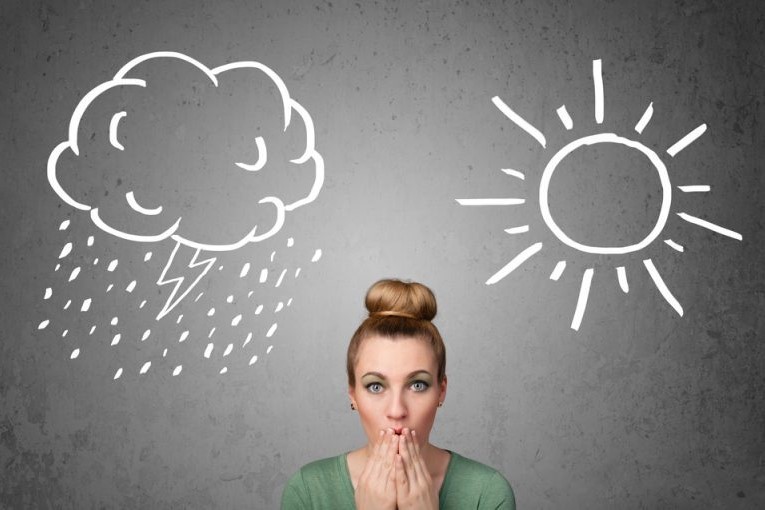
Weather pain and time change: the effects on the mood
Meteoropathy and time change – it sounds like a simple saying, but it’s really true: climate and weather can affect mood, just as the time change causes some people discomfort
Some clinical conditions, such as depression, have their biological roots in altered circadian hormonal rhythms related to humidity, exposure to light and sunlight, rain and heat.
So it is not just a cultural attitude that makes some people say when faced with a rainy weekend ‘I don’t feel like doing anything in this weather’: it is a real biological inclination.
Changes in temperature, in general, can generate anxiety: the greyness of rainy days, the darkness that becomes increasingly enveloping in winter are depressants, as are drops in blood pressure.
However, not everyone is affected in the same way by meteoropathy, and several examples in the literature suggest that some people need sun and warmth more than others, or that others cannot tolerate temperature changes and the greyness of a leaden sky, or that still others cannot feel good in summer and prefer cold and winter weather.
The discomfort of “time change”
It is estimated that as many as 12 million Italians suffer significant discomfort when the time changes.
The time change, with the passage from daylight saving time to solar time, takes place in autumn, a season that for many people represents a difficult time to cope with due to an individual sensitivity that sometimes defines a real disorder, called by specialists SAD: “seasonal affective disorder”.
There are studies documenting a change in the quality of sleep, both in terms of duration and the perception of well-being during the day.
These consequences can be explained by the chronobiology of certain physical and mental processes.
The hormonal and cerebral activities that regulate sleep and mood disorders have a daily, monthly and annual rhythm.
In fact, it seems that depression is precisely the disease of biological rhythms: an alteration in these rhythms would precipitate the mechanisms that generate the depressive syndrome, made up not only of a sense of loss of life, pessimism, guilt and apathy, but also of more ‘physical’ symptoms that are more intuitively linked to circadian rhythms, such as insomnia or lack of appetite.
These effects are partly modulated by the amount of light we are able to gather during the day. The most frequent symptoms are:
- irritability,
- tiredness
- fatigue in concentration,
- a drop in mood.
The effect of the time change can differ greatly from person to person, especially depending on whether they are constitutionally more early risers (the so-called “larks”, who have a propensity to “work” more in the early hours of the day) or more night owls (who prefer to work and be active in the evening): as a rule, early risers are more affected by the change in summer time.
Changing the time: a few tips to help you cope at best
- When the time change approaches, it is best to be prepared. Here are some small tips to help you cope with this event:
- check whether you are actually an early riser or a night owl, as early risers are generally more affected by the time change;
- helping to resynchronise circadian rhythms by trying to go to bed later in the days immediately before the time change, and getting up a little later on the weekend of the time change, taking advantage of the extra hour and thus gradually training for the change;
- the hormonal effects of these changes are mitigated by aerobic physical activity, which is recommended during this period for those who do not have cardiovascular risk factors;
- maintaining an eating style of light meals, trying not to give in to the natural hyperphagia that can occur as an element linked to this syndrome, induced by a neurobiological compensation mechanism;
- people who are particularly sensitive to these changes can benefit from a specific natural therapy consisting of resynchronising circadian rhythms by exposing themselves, at certain times in the early morning, to bright light induced by specific lamps, with the effect of generating an artificial dawn.
Read Also:
Nomophobia, An Unrecognised Mental Disorder: Smartphone Addiction
Nymphomania And Satyriasis: Sexual Disorders Of The Psychological-Behavioural Sphere


